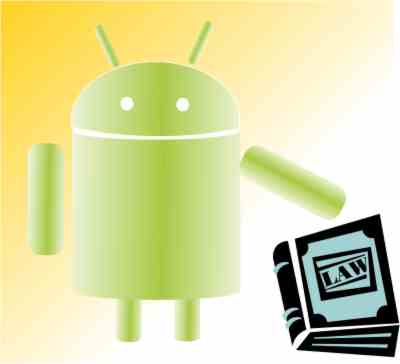| Appeals Court Rules In Favor of Oracle |
| Written by Sue Gee |
| Wednesday, 28 March 2018 |
|
The Federal Appeals Court has ruled in Oracle's favour in yet another round of the seemingly never-ending wrangle about whether Google infringed its copyright in the Android operating system. And we can't let it stop there as the decision would negatively impact every developer and every piece of software.
It is nearly eight years since the start of the legal battle between Oracle and Google over the use of Java APIs in Android. Back in June 2012 we breathed a sigh of relief when, at the end of a 15-month trial, Judge William Alsup, who it transpired had himself written code and knew what an application programming interface was, ruled that Java APIs (indeed APIs in general) are not copyrightable.
U.S. District Judge William Alsup, Oracle of course was not going to accept this and in May 2014 a three-judge panel of the United States Court of Appeals for the Federal Circuit ruled: Because we conclude that the declaring code and the structure, sequence, and organization of the API packages are entitled to copyright protection, we reverse the district court’s copyrightability determination with instructions to reinstate the jury’s infringement finding as to the 37 Java packages. A second jury trial, again presided over by Judge William Alsup in the District Court for the Northern District of California, took place in May 2016 and the verdict was that Google's use of the 37 Java APIs constituted "fair use". However, even as he thanked the jury for its "extreme hard work" in the case, Judge Alsup remarked: “I know there will be appeals and the like.” It then took until December 7, 2017 for Oracle's second appeal to by heard by the United States Court of Appeals for the Federal Circuit before the same three judges. The decision reached on March 27, 2018 was that: Google’s use of the Java API packages was not fair as a matter of law.
This overturned the decision of the District Court and the case is now remanded to the district court for damages. Oracle had originally asked for $8.8 billion - but that was back in 2012 and based on the commercial success of the Android system - which has grown rather a lot over the interim. However what is at stake here isn't just Google's coffers, Nor is it Android since starting with Android Nougat Google has moved away from the disputed Java APIs by using Open JDK, which is open source. Although Google's adoption of Kotlin as the preferred language for future Android development might seem to be another attempt to distance it from Java as Kotlin is a Java VM language it doesn't really have that effect. What the latest judgement means is that any software that uses APIs could find itself being asked to pay for the privilege. Of course APIs are there to be used to avoid reinventing the wheel every time an application is created and to ensure that software can operate across hardware platforms - so the idea of paying for them was never part of the deal. But if Oracle can extract billions from Google it's going to be very tempting for say Micro Focus, the current owners of UNIX to seek damages from Linux, and indeed any other POSIX-based system. And what would be the future of open source software in such a climate. Back in 2014 when Google petitioned the US Supreme Court to hear the case the Solicitor General recommended that the petition should be denied. It is to hoped that this matter can now go to the Supreme Court and that it will rule that APIs are not copyrightable. Related ArticlesGoogle Changes Course For Android N. Oracle v Google - Second Trial Starts Today Supreme Court Refuses To Reconsider API Copyright Decision White House Advises That APIs ARE Copyrightable Supreme Court Seeks Guidance On API Copyright Issue Computer Scientists Petition Supreme Court Over API Copyright Android Copyright Battle Goes To Supreme Court Judge Rules Oracle's Java APIs Not Copyrightable Oracle v Google Judge Is A Programmer! Oracle v Google - Are Computer Languages Copyrightable?
To be informed about new articles on I Programmer, sign up for our weekly newsletter, subscribe to the RSS feed and follow us on Twitter, Facebook or Linkedin.
Comments
or email your comment to: comments@i-programmer.info |
| Last Updated ( Thursday, 19 July 2018 ) |




